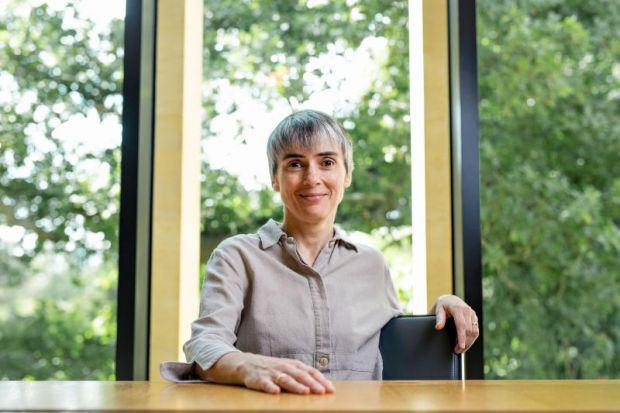The chief executive of UK Research and Innovation has pledged that the organisation is “fully committed to the principles of freedom of speech”, amid mounting criticism of its suspension of an equality body at the behest of science secretary Michelle Donelan, who objected to what she termed “extremist” social media posts by members on the Israel-Hamas conflict.
At least seven academics are thought to have resigned from UKRI advisory positions in the wake of the suspension of Research England’s equality, diversity and inclusion advisory group.
And the University and College Union has warned that it will call on more scholars to do the same if UKRI does not reverse course.
In a letter to UKRI chief executive Dame Ottoline Leyser, Ms Donelan had said she was “outraged” that one group member had described the Westminster government’s plans to crack down on support for Hamas in the UK as “disturbing” and condemned the “amplification” by another academic of a post that condemned violence on both sides but referenced Israel’s “genocide and apartheid”.
While the minister insisted that academic freedom was “sacrosanct”, she warned that “public bodies, or those representing them, cannot be seen to take political positions let alone promote extremist ideologies”.
Even before UKRI’s response, Ms Donelan’s intervention had already sparked a strong response among academics, with more than 2,500 signing a letter that “categorically refute[s] the suggestion that expressions of support for Palestinian civilians and their right to engage in organised political resistance can be equated with support for Hamas”.
In response to the criticism, Dame Ottoline issued a statement saying that she wanted to make her position “crystal clear”.
“We are fully committed to the principles of freedom of speech within the law and equality, diversity and inclusion. These are the foundations on which research and innovation excellence is built,” Dame Ottoline said.
“I am determined to uphold these principles through the actions we are taking, despite the heightened emotions surrounding these debates at the current time.
“With respect to the specific immediate issues, I would like to restate that we are adopting a well-governed process to support evidenced, principled decisions. Only the operations of the newly formed Research England expert advisory group on EDI have been suspended while our investigation proceeds. All our other EDI work continues as normal.
“We want to resolve this as quickly as possible, consistent with taking effective, well-founded decisions. The aim is to bring clear resolution in a way that best supports all of those who serve on our advisory groups, and research and innovation in the UK.
“In line with the principles we espouse, we understand that different people will take different views about the best way to act and we respect their decisions.”
Claire Squires, director of the Scottish Graduate School for Arts and Humanities, and Tanja Bueltmann, professor of migration and diaspora history at the University of Strathclyde, both resigned from UKRI’s talent peer review college.
Professor Squires said on X: “I am extremely concerned about UKRI bowing to pressure from the UK government, particularly in terms of the curtailment of academic freedom of expression with regards Israel and Gaza.
“I am also very worried about what the suspension of the group signals to UKRI’s commitment to EDI.”
Academics Laura Kelly, Matt Bennett, Des Fitzgerald, Mairead Enright and Tanya Serisier all said on social media that they had resigned.




